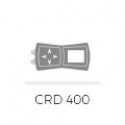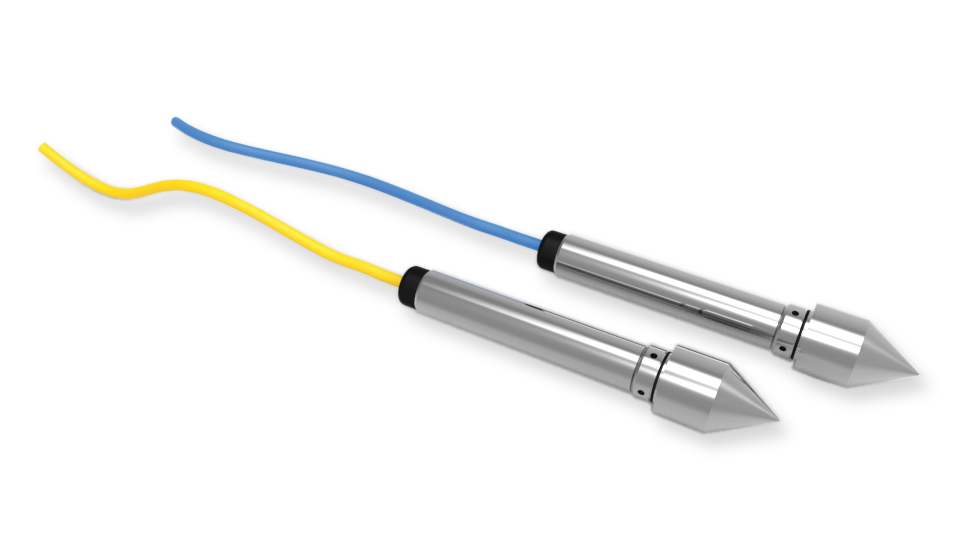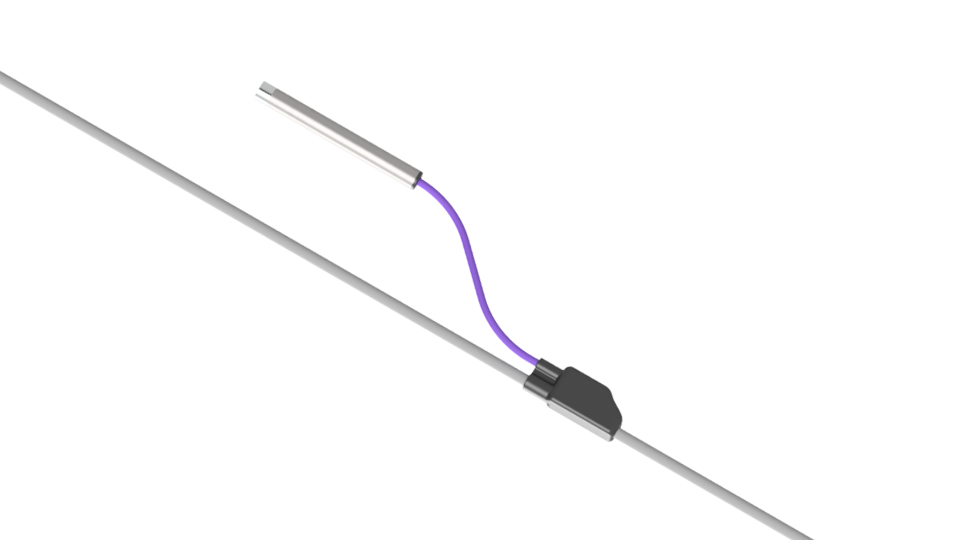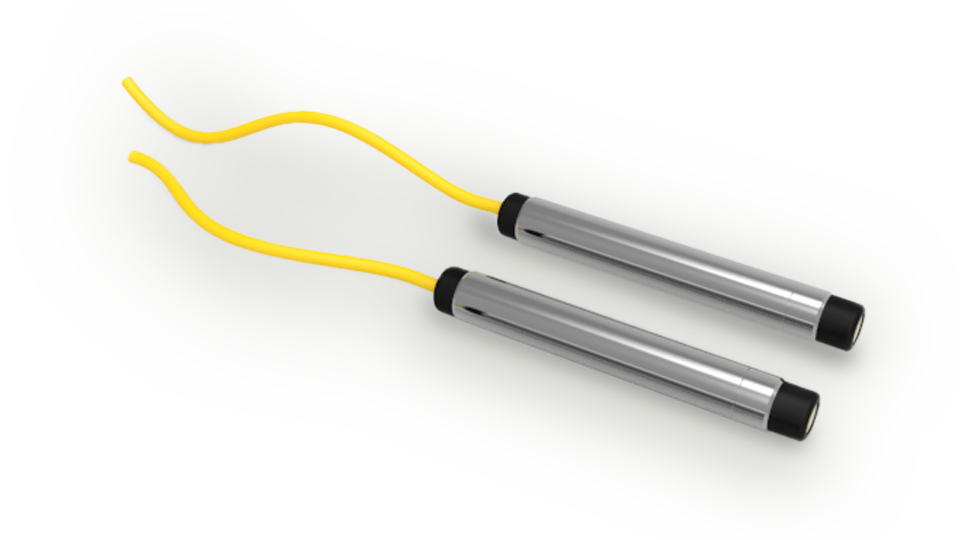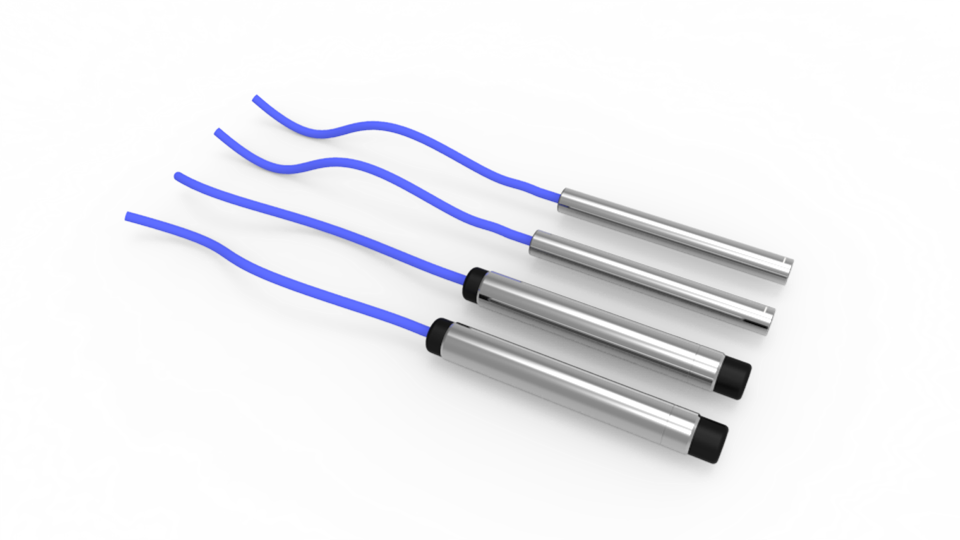Titanium piezometers
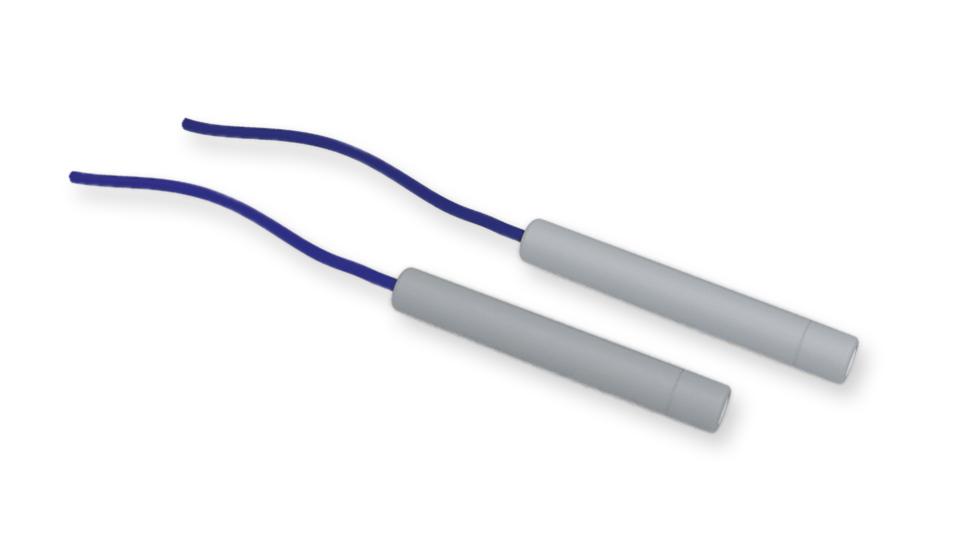
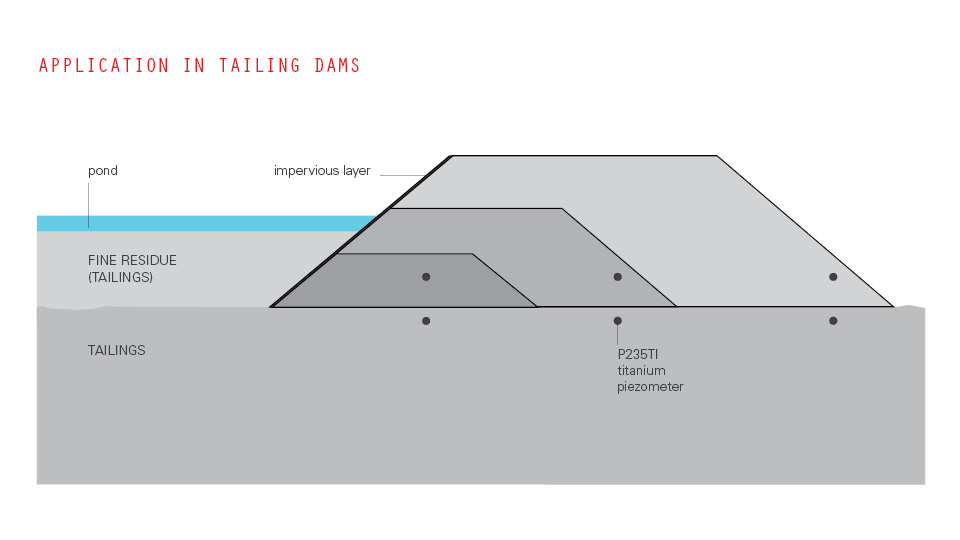
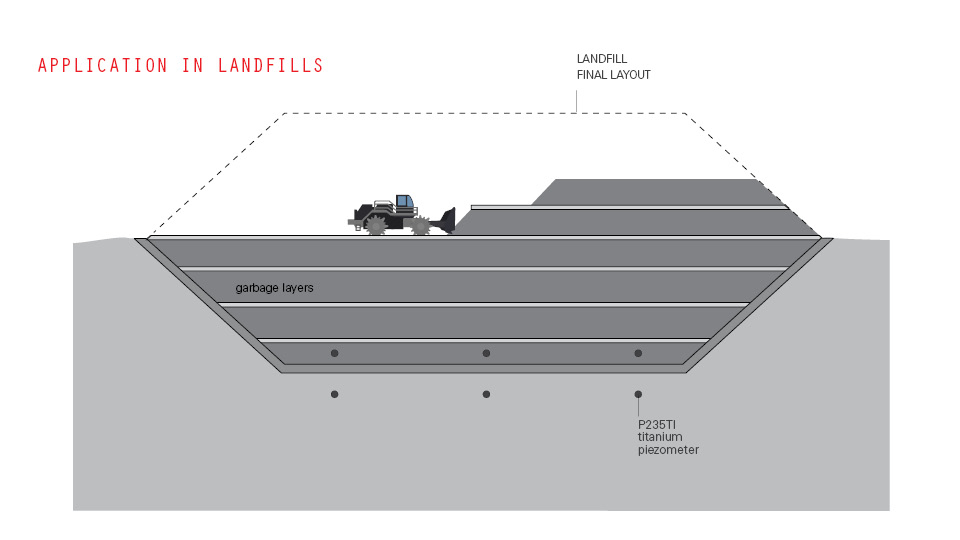
Piezo-resistive titanium piezometers are designed to operate in corrosive environments, such as salt water, tailings, and landfills.
Resistance to corrosion is provided by a titanium body, ceramic diaphragm, polyethelene or ceramic filter, and acid-resistant signal cable. The robust 4-20mA output is compatible with most readouts (as CRD-400) and data loggers and is suitable for dynamic readings.
APPLICATIONS
• Monitoring pore-water pressure under landfills
• Monitoring where brackish water or salt water is present
• Monitoring nuclear waste repositories
• Monitoring pore pressures in tailings
FEATURES
• Corrosion-proof up to pH=1
• High accuracy and stability
• Compatible with most readouts and data loggers
• Built-in thermistor (on request)
• Suitable for dynamic measurements
Resistive pressure transducer sensor is a spin off from thick film technology using the piezo-resistive characteristic of specific resistive inks. Resistors, formed using screen printing techniques, are deposited on a deformable ceramic diaphragm substrate to form strain gauge arrays. Strain changes from external loads applied to the deformable ceramic diaphragm result in resistance changes of the strain gauge arrays.
The electric signal from the strain gauge arrays is directly proportional to the stress applied to the diaphragm. Sensor is constructed of a ceramic, analogous to a crystal structure, to form a pressure diaphragm chemically inert with near perfect mechanical characteristics. Screen printed resistors are deposited onto the diaphragm to form a 4 arms Wheatstone bridge.
A fixed excitation voltage is applied to one diagonal of the circuit. Strains experienced by the diaphragm will change the values of the individual resistors within the Wheatstone bridge resulting in a bridge unbalance. This unbalance produce an output signal from the other diagonal of the Wheatstone bridge, directly proportional to the applied stress.
An electronic board converts this signal into 4-20 mA suitable for transmission over long distances to remote readouts or to data acquisition systems.
Readable by

